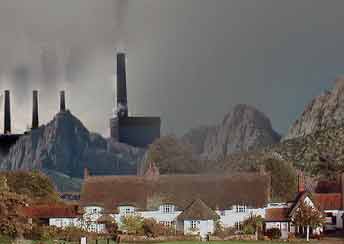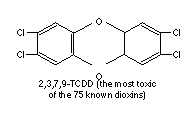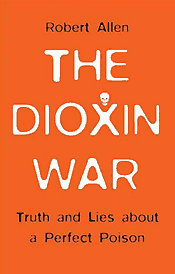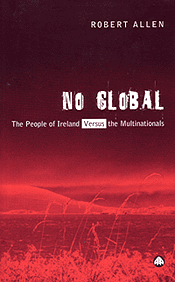|
from february 19 2006 blue vol V, #1 |
|

by Robert Allen
By the end of the three week hearing, some of the EPA's harshest critics were wondering why they had given the job of dealing with their complaints to such a good-natured person. Some suggested he was out of his depth. Others, less kindly, said he was the wrong man for the job. A geologist by trade, it seemed there was no way he could deal with the complex issues that come with incinerator licence applications. Derham was clearly at the high table to adjudicate a whitewash - Indaver were getting their licence no matter what anyone said. That's what the people said. Most of the time he had to field angry admonishments, more often than not about why EPA's hierarchy were not in Cork to answer specific questions. That wasn't their role, he repeatedly declared, it was his role to hear the submissions and then report back to the EPA in Johnstown Castle.
That warm feeling towards him has now dissipated. All it took was a careful reading of his report on the hearing. Derham indeed was out his depth; his report, people said, is a waste of good trees. The EPA senior inspector is now seen as a pawn in a game where he got to play the bright forward moves for the King and Queen. Sadly, he has followed the path across the squares of all those state pawns who came before him, whether they be American, British or Irish. He is a pawn alright - a pawn for industry and for the industrial lobby that influences state policy on things like incineration and its health implications. Derham has ignored these implications, he has ignored the thousands of scientific reports that link the combustion of chemical compounds with human health. According to him, the literature is clear. There is no cancer link with incinerators; respiratory impacts are also inconclusive. It gets better, or worse - depending on your perspective. He said in his report: "The inconclusive results of the health impacts from incinerators recorded by the Health Research Board reflect the findings of the US National Research Council in their study published in 2000, and the UK Department for Environment, Food & Rural Affairs (the latter for municipal solid waste incineration only) in their 2004 publication." That's right Jonathan, roll out the state science - the flawed, inconclusive, state science. As a report, it is a piece of whitewash; as a document that forms the basis for a licence, it is seriously flawed. Quite rightly, the communities around Ringaskiddy who will be affected by Indaver's burners are deeply unhappy. Mr Nice Guy wore a mask. The following is a key sentence in Derham's report. "The protection of human health in relation to the operation of waste facilities is assured through the use of standards." Derham was aware during the hearing that the objectors to the Indaver licence were unhappy with, as he put it, "this standards approach - implying that it is not sufficient". In fact, what the objectors really said was that they rejected these standards because they are set by industry and applied to legislation by the state; they are not the consequence of an holistic approach to the issue, the burning issue, that incinerators create deadly poisons.
Derham's boss, Mary Kelly, once had an interesting view on standards, when she was asked about them during the years when she worked for IBEC, the industry confederation. Her reply? "Do we want to be waitresses and organic farmers, or do we want to get on with it?" It seems we are getting on with it and the evidence that incineration creates chemical compounds that lead to cancer, hormonal, immune, developmental and reproductive system break-down, heart disease, liver damage, bone and skin diseases and reduced sperm counts has been made up by a whole host of people with nothing better to do with their lives; in other words, they are lying. Apparently, that is what the EPA believe. Truth and lies about the chemicals that come out of incinerator stacks dominated the 20th century. Yet while some countries have managed to sift out the accurate information and have changed their legislation to protect the health of their communities, here in Ireland we follow the American and British model. Interestingly some of the most damning research about incinerators and their implications for communities has come out of good old US of A, notably in the opening chapter of the 900 page book Dioxins and Health by specialists Arnie Schecter and Tom Gasiewicz (a reference, by the way, that is missing from the EPA report; it is remarkable that Schecter, the world's most prominent specialist on the health implications of chemicals like dioxin, is not once included in Derham's report). In an overview of the dioxin debate, Tom Webster and Barry Commoner put the fears of the Cork communities in perspective. "In our opinion, the public fears are largely justified. The current scientific evidence [pre-2003] argues not only that dioxin is a potent carcinogen, but also that the noncancer health and environmental hazards of dioxin may be more serious than believed previously." They go to state: "Perhaps the most troubling consequence is the possibility of reproductive, developmental, and immunological effects at the levels of dioxinlike compounds now present in the bodies of the average person." Dioxins cause cancer, that is a fact. Dioxins, specifically the most deadly dioxin - 2,3,7,8-tetra chloro dibenzo-p-dioxin, are emitted from incinerators, along with a whole host of other chemicals and it is this chemical concoction that causes a range of illnesses. This isn't inconclusive, Jonathan, it is established evidence available in the scientific literature - which you have not read. The sad fact is that the people who presented this evidence to the oral hearing got it wrong, they only told part of the story. Incinerator applications have been defeated before, but other factors (economics, politics) were applied to the argument; never in Ireland has a licence been determined by all the facts known about incineration and its implications for human health. That is the real tragedy here.
|
| BLUE is looking for short fiction, extracts of novels, poetry, lyrics, polemics, opinions, eyewitness accounts, reportage, features, information and arts in any form relating to eco cultural- social- spiritual issues, events and activites (creative and political). Send to Newsdesk. |

 Still, he came across as a nice man.
Still, he came across as a nice man.
 Robert Allen is the author of four books that feature the
implications for human health from incinerators - Guests of
the Nation, Waste Not Want Not, The Dioxin War and No
Global.
Robert Allen is the author of four books that feature the
implications for human health from incinerators - Guests of
the Nation, Waste Not Want Not, The Dioxin War and No
Global.
 No Global: The People of Ireland versus the Multinationals, Pluto Press, London/Ann Arbor/Dublin, published in April 2004.
No Global: The People of Ireland versus the Multinationals, Pluto Press, London/Ann Arbor/Dublin, published in April 2004.